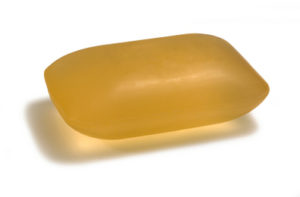 An interesting study about exposure to household cleaning products (regular cleaning products compared to eco-friendly products) and the gut microbiomes of young children was recently published. Canadian researchers found that the use of household cleaning disinfectants in the home was associated with changes in gut microbial communities in infants (more of some bacteria and less of others) - when compared to infants living in homes where eco-friendly cleaners were used. These changes occurred in a dose dependent manner (the more they were used, the bigger the changes).
An interesting study about exposure to household cleaning products (regular cleaning products compared to eco-friendly products) and the gut microbiomes of young children was recently published. Canadian researchers found that the use of household cleaning disinfectants in the home was associated with changes in gut microbial communities in infants (more of some bacteria and less of others) - when compared to infants living in homes where eco-friendly cleaners were used. These changes occurred in a dose dependent manner (the more they were used, the bigger the changes).
Also interesting was that the more disinfectants (which are antibacterial) were used in a home, the more Lachnospiraceae was found in the infant's gut microbiota in infancy (age 3 to 4 months), and this was associated with a higher body mass of the child at 1 and 3 years, and increased odds of being overweight or obese at age 3. Use of eco-friendly products was associated with decreased odds of the child being overweight or obese at age 3. What was heavy use of household disinfectants? Daily or weekly. Just keep in mind that these are associations - not a definite cause and effect. But animal studies find similar results. And I wonder - what is frequent use of disinfectants doing to adult gut microbiomes? From Medical Xpress:
Household cleaning products may contribute to kids' overweight by altering their gut microbiota
Commonly used household cleaners could be making children overweight by altering their gut microbiota, suggests a Canadian study published in CMAJ (Canadian Medical Association Journal). The study analyzed the gut flora of 757 infants from the general population at age 3-4 months and weight at ages 1 and 3 years, looking at exposure to disinfectants, detergents and eco-friendly products used in the home.
Researchers from across Canada looked at data from the Canadian Healthy Infant Longitudinal Development (CHILD) birth cohort on microbes in infant fecal matter. They used World Health Organization growth charts for body mass index (BMI) scores.
Associations with altered gut flora in babies 3-4 months old were strongest for frequent use of household disinfectants such as multisurface cleaners, which showed lower levels of Haemophilus and Clostridium bacteria but higher levels of Lachnospiraceae. The researchers also observed an increase in Lachnospiraceae bacteria with more frequent cleaning with disinfectants. They did not find the same association with detergents or eco-friendly cleaners. Studies of piglets have found similar changes in the gut microbiome when exposed to aerosol disinfectants.
"We found that infants living in households with disinfectants being used at least weekly were twice as likely to have higher levels of the gut microbes Lachnospiraceae at age 3-4 months; when they were 3 years old, their body mass index was higher than children not exposed to heavy home use of disinfectants as an infant," said Anita Kozyrskyj, a University of Alberta pediatrics professor, and principal investigator on the SyMBIOTA project, an investigation into how alteration of the infant gut microbiome impacts health. Babies living in households that used eco-friendly cleaners had different microbiota and were less likely to be overweight as toddlers.
She suggests that the use of eco-friendly products may be linked to healthier overall maternal lifestyles and eating habits, contributing in turn to the healthier gut microbiomes and weight of their infants.
